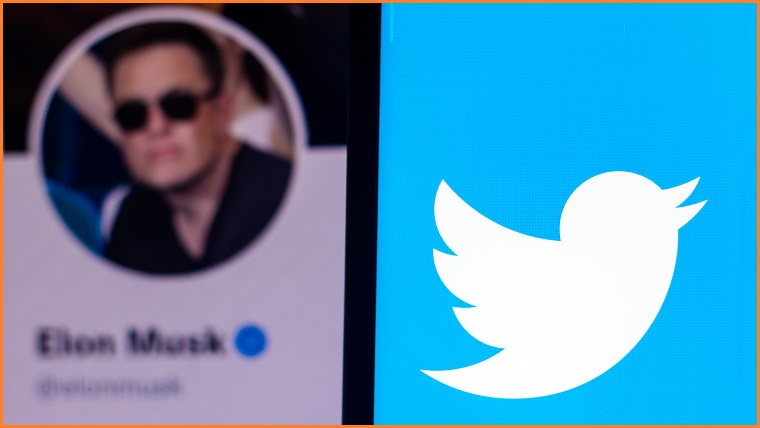‘Free speech’ was the battle cry of billionaire Elon Musk as he rode through the corporate defences of social media platform Twitter and claimed ownership after a public, month-long battle for the company’s future.
Musk has spouted the long-held democratic ideal of free speech throughout the Twitter acquisition saga, opening his official statement when the deal was closed by saying “free speech is the bedrock of a functioning democracy”.
In response to the outrage – which has included progressives leaving the platform in droves – following his $61 billion purchase, Musk tweeted that “the extreme antibody reaction from those who fear free speech says it all”.
Musk has previously referred to himself as a “free speech absolutist” and believes there ought to be limited restrictions on what people can say and how they say it.
Mark Andrejevic is Professor of Communications and Media Studies at Monash University.
He described to Information Age Musk’s version of free speech absolutism as a “fantasy” that has become especially prevalent in internet communities.
“The internet tempts us to imagine absolute free speech is possible because it has a disembodied anti-social feeling,” Professor Andrejevic said.
“We sit in our room typing away to largely invisible audience, not feeling beholden to the kinds of social niceties we might expect when talking to people in person.”
There have been examples of online communities and platforms that claim to be bastions of absolute free speech, like 4chan and 8chan/8kun which have become infamous boards that harboured white supremacists and domestic terrorists.
“If indeed Musk’s goal is to create as unregulated and unmoderated platform as possible, well we know what happens – you get an environment where the loudest trolls, and in many cases the most hateful and extreme trolls, come to dominate the space that other people don’t want to inhabit,” Professor Andrejevic said.
“If that’s the experiment he’s going to run then that’s already been run, and the outcome is familiar – it will become a niche extremist platform and probably lose a lot of its base.”
Commercial considerations
But there are, as Professor Andrejevic points out, commercial imperatives for companies like Twitter not to let hate speech and trolls run amok.
Globally recognised brands typically don’t want to have their ads featured alongside Nazi propaganda, for example, and it’s still necessary for ‘the algorithm’ – a set of human and automated processes that inform what people see on platforms at any given moment – to keep users engaged.
It’s for these reasons that Mark Humphery-Jenner, an Associate Professor at the University of New South Wales’s Business School, expects Twitter’s speech policies to largely continue unchanged.
“I think, if he hasn’t already, Musk will fast realise that opening up more free speech is going to be very difficult without turning Twitter into a cesspool,” Humphery-Jenner told Information Age.
“He has flagged wanted to open source twitter’s algorithm – which is easier said than done – but he could certainly make the rules around bans a little more black letter, more rigourously detailed, and clear for what is or is not going to get people banned.”
It’s more likely, as Hunphery-Jenner sees it, that Musk will be focused on adjusting Twitter’s business model which has been largely reliant on advertising revenue that other platforms like Meta and YouTube are seeing decline.
“He could try to change the pricing structure of things like Twitter Blue so it is more affordable in lower income countries, and add more value to Twitter Blue,” he said.
“Musk has also expressed a willingness to let people pay in crypto – but he may have been facetious.
“I think it might be worth adding more money making tools for creators: podcast functions, or a YouTube-type competitor, things [newsletter platform] Substack has been trying to do.”
By the law
In a reply to his antibody tweet on Wednesday morning, Musk clarified that his version of free speech is that which “matches the law”.
“If people want less free speech, they will ask government to pass laws to that effect,” Musk tweeted.
“Therefore, going beyond the law is contrary to the will of the people.”
Far from clearing up what he plans to do with his $61 billion purchase, Musk’s definition of free speech points to the immense difficulties of moderating content on a global platform like Twitter.
Laws that govern free speech are, to put it mildly, variable.
A disparaging tweet about the King of Thailand might be okay to send from Mexico, for example, but couldn’t be sent freely from within Thailand without the risk of serious consequences.
Likewise, people in defamation-friendly jurisdictions might sue people for tweets they found personally offensive or reputationally damaging, as defence minister Peter Dutton did when he successfully brought a defamation case against a refugee advocate for tweeting that Dutton was a “rape apologist”.
Governments and courts often issue takedown requests to social companies and it’s common for those companies to publish transparency reports in which they describe the number and origination of content takedown requests.
These reports provide a snapshot of the size of the task global speech compliance is for these companies who want to simultaneously operate in as many markets as possible.
Twitter’s latest transparency report describes the first six months of 2021.
During that period it received 43,000 demands to remove content from nearly 200,000 accounts.
Twitter said this was the largest increase in takedown demands since it started publishing these reports in 2012 and it complied with 54 per cent of those requests.










